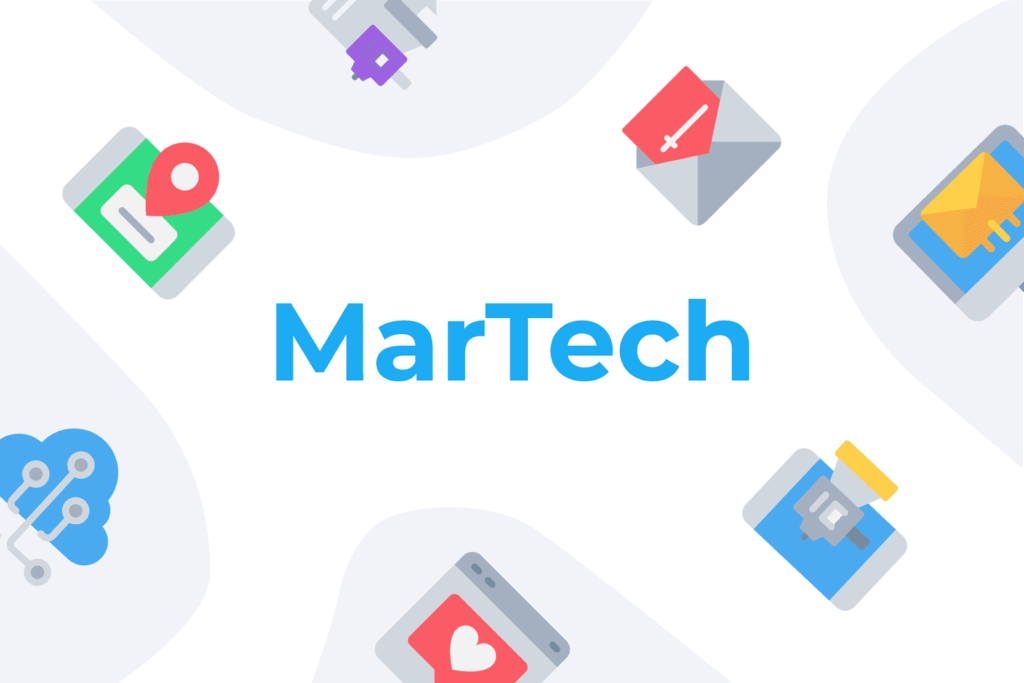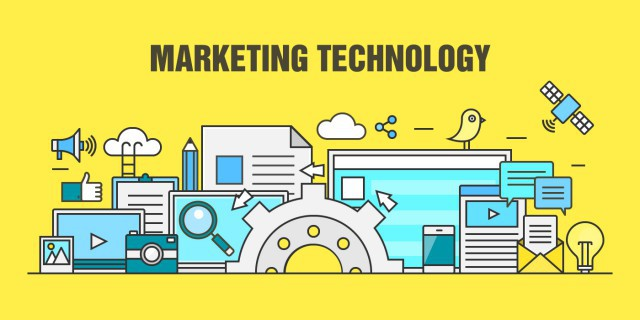
All You Need To Know About MarTech or The Fundamentals Of MarTech
Introduction
Imagine a tech business without digital marketing and a marketing agency without technology. How would a business survive without technology or marketing? Sounds impossible right?
As we all know, technology is moving at a great pace and it’s a fair question considering the digital world we live in and our celebration of both terms.
Perhaps, we could live without them on a personal level, but as a business, it’s inevitable.
In fact, we can see more growth in the digital world in the past 5 years than over the entire 25 years combined together, before that. It’s apparent that the comparatively young martech sector is no exception, boasting a whopping more than 7000 technologies and platforms and no signs of slowing down.
What’s the Role of Martech in the Current Scenario?
Currently, it’s no secret that marketing and technology go together like gin and tonic or french fries and ketchup or fuel and engine….these examples enough? Hope you get the idea.
They’re a power combo. Naturally paired together to enhance the overall digital experience. Nowadays, it’s damn near impossible for marketers to perform without the right tools and technologies in their arsenal, and the same applies on the tech team, they can’t work smoothly without marketing. For marketing efforts, technology enables you to automate, personalize, and more and marketing helps technology in growth.
It’s also understandable that navigating space can feel incredibly challenging. But not fully embracing martech because it appears complex is the equivalent of local businessmen not embracing online platforms to promote their business because it seemed too “niche.” But we all know who’s laughing now!
No doubt, the key to your business in the current era, is just to have the right Martech stack. And in case you still think your current martech stack doesn’t need an upgrade, then please, think again!
But before that, do you really know what is Martech exactly? And what strategies and tools do you need to streamline your marketing?
If not then no worries! We’re here to help you out. Today in this blog we’re going to tell you some of the basic things you need to know before starting up with Martech. On this note, here we go!
Let’s dive into the definition first!
What is Marketing Technology?
MarTech, in the simplest way we can say, it’s the marriage of marketing and technology and has quickly become an essential competency for companies looking to enable customer-centric, personalized marketing.
However, much like modern art, many people appreciate the idea of MarTech but don’t fully understand it. It might sound complex, but marketing technology is a general term for the tools that allow you to market smarter. If you use Google Analytics to track performance on your website, or send emails through a platform like MailChimp or HubSpot, you’re already using “MarTech.”
Let’s cover the basics first!
At a very fundamental level, you won’t feel puzzled trying to understand martech, or “marketing technology.” Similar to some of the common portmanteaus like “dumbfounded”(dumb+confounded),“brunch” (breakfast + lunch), “motel” (motor + hotel), “emoticon” (emotion + icon), etc.

Just like that the term “martech” combines the words “marketing” and “technology.” It refers to any software and technology tools marketers use to plan, execute, track, measure and analyze marketing campaigns. Being a non-stop world, there are literally many useful tools and innovations that are designed to automate and simplify your marketing strategies and efforts.
In other words, marketing technology describes the systems and tools that help marketers better engage with customers. These products use technology to automate many of the time-consuming and repetitive tasks that machines are good at, freeing up more of marketers’ time to focus on the creative and strategic sides of their profession.
It can address one or more marketing activity layers, such as customer data aggregation and cleansing, data analysis, insight generation, customer segmentation and targeting, execution of customer communications and automatic optimization of recurring marketing campaigns.

Why Is MarTech Important?
Modern-day marketing wouldn’t be possible without the plethora of MarTech tools on the market today.
Martech is important because it helps businesses work more efficiently by streamlining workflows, processes, and data. MarTech’s mission is unlike any other. You’ll get the mainstream marketer’s perspective: innovative, practical, brand-safe, results-driven and resource- and time-constrained. At the same time, marketers benefit greatly from having a well-thought-out MarTech stack by helping them manage a multitude of tools and information easily.
In short, MarTech is simply just ‘Marketing.’
MarTech’s context is mainly on these six topics:
- Transformation: New tools and new approaches that require constant change.
- Data: The oil that makes marketing run in the right direction.
- Operations: Effective orchestration is magic.
- Experience: Customers and prospects are the arbiters of success. Their satisfaction alone yields results.
- Performance: Tactical marketing is science.
- Management: Outcomes are bounded only by the imagination and proficiency of the people and teams at the wheel.
These six topics, propped up with the marketing technology, are MarTech’s formula for modern marketing and MarTech’s reason for existence.

What are the Advantages of MarTech?
These are some of the benefits that include but are not limited to:
- Do More With Less : Processes that would usually take a marketing team an extended period of time can be automated. These include using machine-learning and marketing automation software to complete repetitive tasks such as pulling data, converting file formats, and finding assets.
- Improve Communication Across Teams: By providing a more streamlined and transparent way to access information about projects, their progress and their results, organizations can improve communication and efficiency across teams allowing them to make better, more informed decisions.
- Create Data-Driven Content: Connect with your target demographic and current customers by applying the insights and data gained to improve experiences, deliver timely and relevant information and understand what works and what doesn’t.
- Customer Relationship Management: Make your customers feel like you are speaking directly to them by utilizing past behaviors, conversations, interactions and more.
- Increase Efficiency: Teams can work faster and smarter as more and more people use the tool and improve its functionality across the organization: Make your customers feel like you are speaking directly to them by utilizing past behaviors, conversations, interactions and more.

Why You Should Have A Fair Idea About MarTech?
No doubt you will be hard-pressed to find any definitive metrics for how efficacious marketing technology is for a business. The reason for this is marketing automation platforms and other marketing technologies should always be considered tools to be used and not solutions. Here is what it means and how it relates to this question. Let me use an analogy to make it easier to understand.
Suppose that you’re interested in guitars. You love the idea of laying the foundation of a musical rhythm the rest of the band then builds upon to create beautiful music. Bass guitars come in a variety of sizes, shapes, and styles. Each has their own beauty and their own purpose. They are powerful tools that, when placed in the right hands, can be used to impress and stun the audience. But, if you give a bass guitar to any of your family members, the result would be vastly different. Obviously you naturally and instinctively understand this difference. The guitar didn’t change-the player did. And the results are completely different.
The analogy should be fairly self-explanatory. Those same principles apply to marketing tech. These are tools to be used and with the right marketing department they can impress and stun others. Inexperienced or new marketers will find the benefits far fewer and their path much different.
Once we’ve established this baseline understanding there are numerous metrics and statistics which demonstrate what is possible with effective marketing strategies.
What Are Some Basic Martech Strategies?
Here are some best practices for developing a winning martech strategy:
- Go top-down – Build a martech “stack” in a top-down manner, starting with the company’s overall marketing strategy and goals. By thinking in broad terms of high-level objectives, you will reach better decisions on what specific capabilities and measurements you need to support.
- Include all data – Carefully consider all existing data sources that should be integrated to achieve your martech goals, and ensure that the solutions you select can work with those sources. Having a complete customer profile, based on all available data, is critical.
- Integrate with all channels – Carefully consider all the marketing and communication channels that you need now – as well as those you expect to use in the foreseeable future. Only through effective coordination among all channels – email, SMS, on-site/in-app, online advertising, social media, call center, etc. – will your martech stack enable you to optimize the overall customer experience. No more silos!
- Measure and optimize – Continuously measure and optimize how your martech strategy is working. Don’t be afraid to rethink decisions and make changes as required!
We Can Help!
We help you by applying the most advanced marketing technologies to automatically orchestrate large-scale, personalized, multi-channel customer marketing. In a nutshell, we help your tech marketers implement a systematic approach to planning, executing, measuring and optimizing a complete, highly personalized customer marketing plan. The result is maximized customer retention, loyalty and lifetime value.
Contact us and learn how you can use Zavops to convert more customers, increase the spend of existing customers and reduce customer churn.

Related Articles
- How to Get Featured as a Source in ChatGPT Results: A Research-Based Guide for 2026by Harshita
- How to Choose Keywords That Rank in AI Overviewsby Harshita
- Why Schema Markup Is Critical for SEO Success in 2026by Harshita
- SERPs With Ads and AI Overviews Grew by 394% in 2026: What It Meansby Harshita
- 3 Proven Strategies to Rank Higher on Google Maps SEOby Harshita









